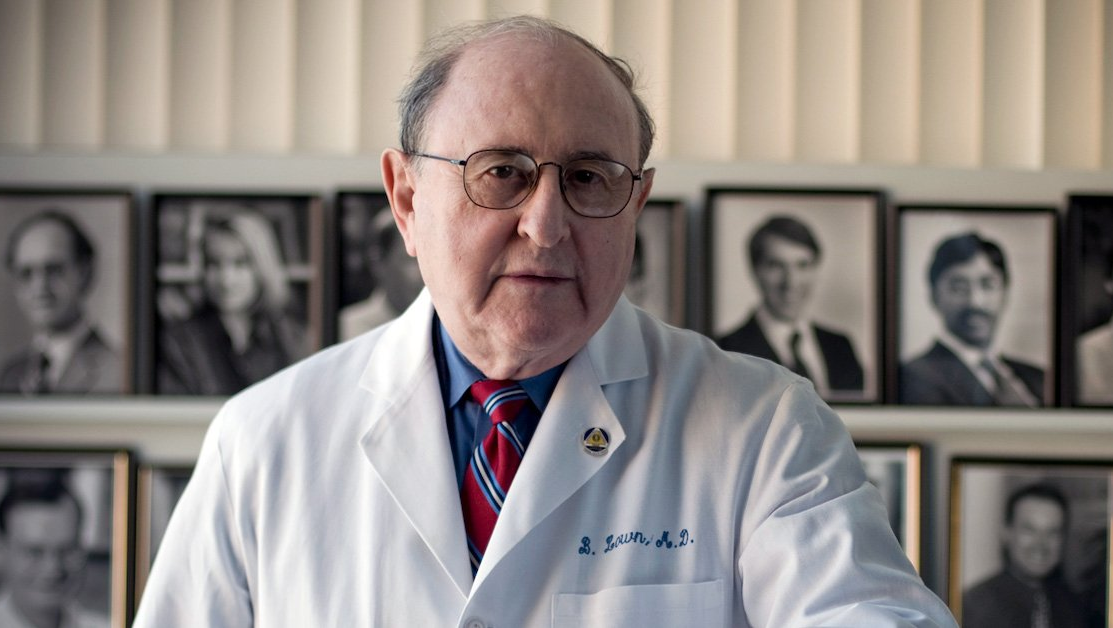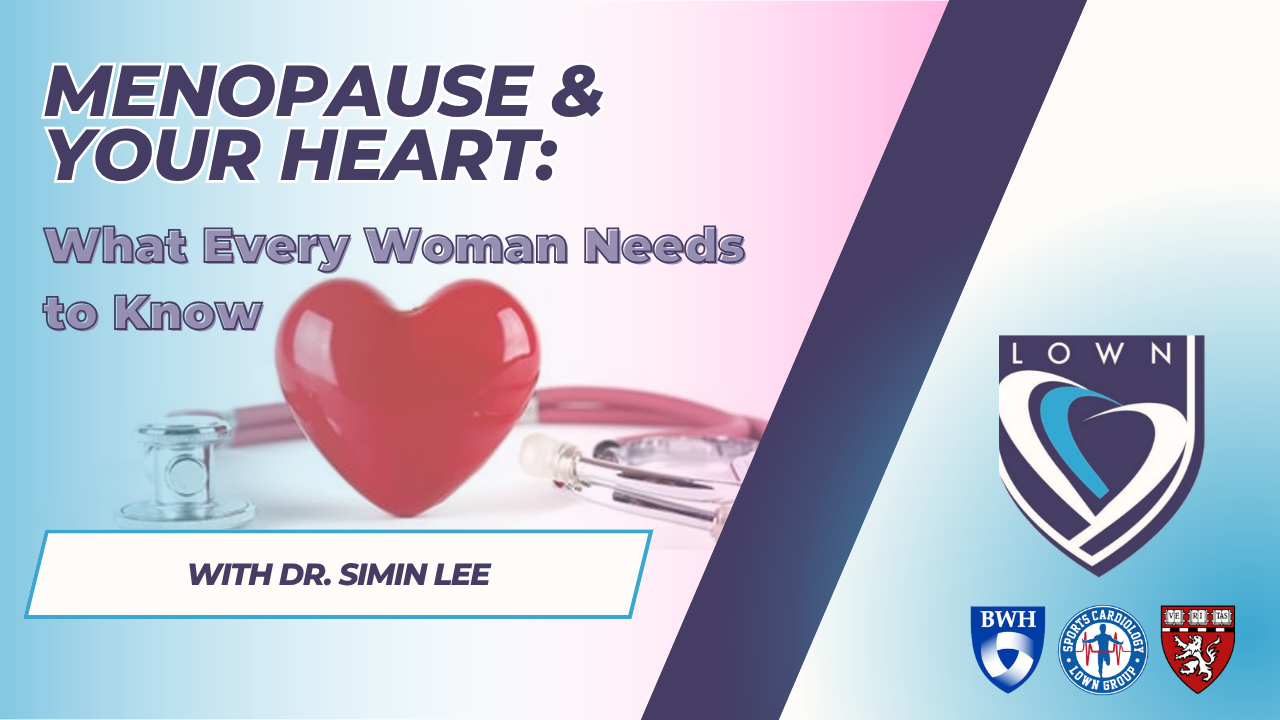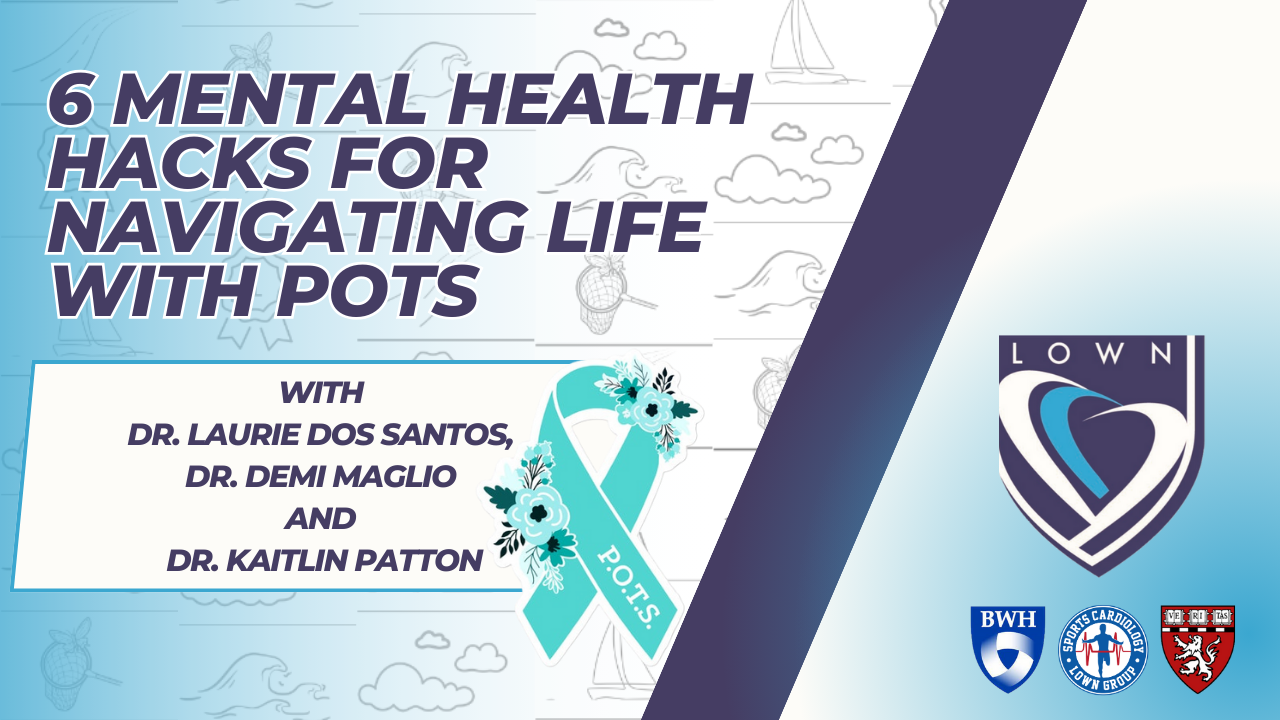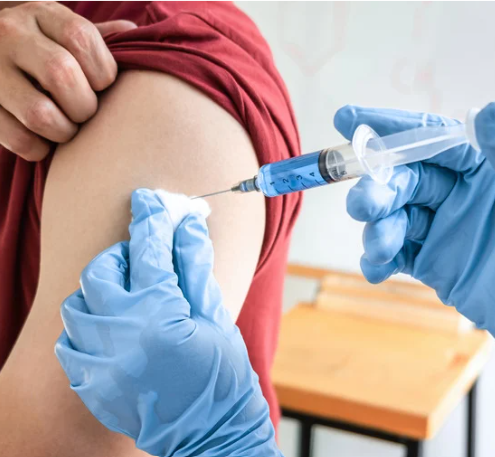A Personal Tribute to Dr. Bernard Lown
Dr. Bernard Lown passed away at age 99 on February 16, 2021. He was a giant in medicine, and my teacher and mentor. He founded the Lown Cardiovascular Group in 1974. At 99 years old he remained active and engaged. We mourn his passing but celebrate his legacy and life.

I first met Dr./Professor Lown in 1994 and after my fellowship in cardiovascular medicine, he hired me as a Lown cardiologist in 1997. Initially he was my teacher and mentor, and subsequently a colleague, but always my mentor.
A brilliant, self-deprecating man, I clearly remember that when Dr. Lown retired from clinical medicine at age 87, he lamented to me he was “just learning how to be a doctor.”
Throughout his life he received countless honors and awards, and in his later years, after receiving yet another accolade, he said: “As I grow older, the words you have just heard sound more and more like finely etched eulogies, and they promise to make death a non-event.” While I always smiled when I heard this, this is certainly not the case now.
Dr. Lown had unfathomable impact on many, on a personal level, nationally and globally. He has written much, and much will be written about his life. He trained countless cardiologists and clinicians around the world. After his passing on Tuesday, I was flooded with vivid memories of the dynamic, lively conversations, discussions, and even heated arguments all of us at Lown Cardiovascular Group had while sitting at a board room table in a room enshrined with his many accolades and awards.
I am struggling to find the words to express my grief, sadness and profound gratitude to Dr. Lown. Very few people are gifted with his eloquence, however, so instead, I’d like to share a few of his words that provide insight into his remarkable life. They resonate even more meaningfully now and will always inspire and define my vision of medicine, patient care and a life well-lived.
From his 1996 book “The Lost Art of Healing”:
A three-thousand-year tradition, which bonded doctor and patient in a special affinity of trust, is being traded for a new type of relationship. Healing is replaced with treating, caring is supplanted by managing, and the art of listening is taken over by technological procedures. Healing is best accomplished when art and science are conjoined, when body and spirit are probed together. Only when doctors can brood for the fate of a fellow human afflicted with fear and pain do they engage the unique individuality of a particular human being. Patients and doctor then enter in a partnership as equals. As the patient is empowered, the doctors curing power is enhanced. A doctor establishes credentials as a caring practitioner during the very first visit by listening attentively. This, requiring engagement of all sensibilities, is the most powerful diagnostic device in the doctor’s armamentarium.
From his 80th birthday speech in 2001:
Central to my life over these many decades has been the work of the Lown Cardiology Group. Against great odds, we have tried to demonstrate that a few physicians, in a micro enterprise, can uphold in clinical practice an old and hallowed tradition as well as adhere to the cutting edge of scientific practice. We have refused to pigeonhole patients by their disease and become "health vendors.” We have desisted being traffic cops shuttling patients to numerous consultants, or being triage officers for differing technologic options. We aspired to provide first-rate health care with a human face.
One of the most uplifting experiences of my life involved the launching of the International Physicians for the Prevention of Nuclear War (IPPNW), together with that extraordinary Soviet physician Dr. Eugene Chazov. The advent of the nuclear age posed an unprecedented question: not whether war would exact yet more lives but whether human beings had a future on planet earth. Our destination of nuclear abolition is not yet reached, but we helped provide a breathing spell, to permit reason to prevail.
1997 we launched ProCOR (for the heart) an e-mail and web based electronic conference on the Internet addressing the menace of cardiovascular disease in developing countries. We aim to stimulate community practices and health policies that promote cost-effective prevention. The Lown Group in cooperation with the Brigham and Women's Hospital then created a developing world fellowship. Promised is expansion of the global outreach of our philosophy and hopefully diminution of the scourge of heart disease.
I came to appreciate the impact that physicians can exert when involved socially. I have learned to let imagination roam into the gossamer terrain of the weave of great dreams. Above all I have come to appreciate that there are humans out there who stand proud and principled and are ever ready to challenge injustice whatever the odds, whatever the costs.
At the close of a long life the British philosopher, essayist and peace activist Bertrand Russell wrote: “This has been my life. I have found it worth living and would gladly live it again if the chance were offered to me."
I too would accept the chance of living my life again, but only on condition that I could have the very same family, the very same friends, the very same colleagues and the very same patients.
We will miss you Dr. Lown. We are grateful for your mentorship, your time, and the gift of social conscience.
Recent Blog Posts






